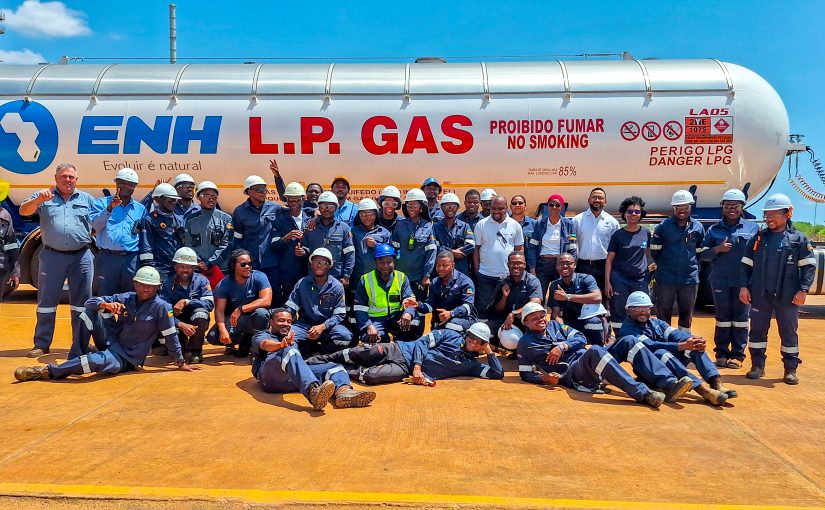Kenmare allocates 40 per cent of procurement budget to Mozambican suppliers
Sasol carries out experimental loading of cooking gas produced in Mozambique – AIM

Photo: Sasol em Moçambique
The South African petrochemical giant Sasol on Tuesday carried out the experimental loading of the first batch of Liquefied Petroleum Gas (LPG), commonly known as cooking gas, produced in the southern Mozambican province of Inhambane.
In a statement, the company claims that this achievement marks a historic milestone that underscores Sasol’s role as a pioneering operator in the Mozambican oil and gas industry, reinforcing its contribution to the country’s development.
The cooking gas will be processed at the new Integrated Processing Facility (IPF) of the Production Sharing Agreement (PSA), located in the Inhambane district of Inhassoro, and will be supplied to the domestic market.
“The successful completion of this first LPG loading operation represents a major step in the commissioning process of the new infrastructure, whose preparations for official inauguration are now at an advanced stage”, reads the statement.
According to the document, the IPF, which is regarded as one of the most modern facilities of its kind in Africa, has the capacity to produce up to 30 000 tonnes of LPG per year, helping to reduce imports of this product by around 70 per cent and ensuring a more stable and predictable supply to the local market.
READ: First cooking gas produced in Mozambique – Sasol
Ovídio Rodolfo, the Sasol Managing Director in Mozambique, cited in the document, says that “this first loading of cooking gas represents the realisation of yet another step towards monetising natural gas within the country, creating greater value for the domestic market.”
The LPG is produced from natural gas extracted from the Inhassoro and Govuro reservoirs through an industrial process of separation and treatment which, according to Sasol, yields a clean, safe, and efficient fuel.
The PSA Project, operated by Sasol Petroleum Mozambique, also includes the production of around 4,000 barrels per day of light oil and 23 petajoules of natural gas destined to generate 450 megawatts of electricity at the Temane Thermal Power Plant (CTT).
With this development, Mozambique joins the group of African countries that process their own hydrocarbons locally, strengthening energy security and promoting sustainable economic growth.
Sasol, in partnership with the Mozambican Government and the National Hydrocarbons Company (ENH), claims that it is thus reaffirming its long-term commitment to industrial growth, local value creation, and the continued development of the national energy sector.












Leave a Reply
Be the First to Comment!
You must be logged in to post a comment.
You must be logged in to post a comment.